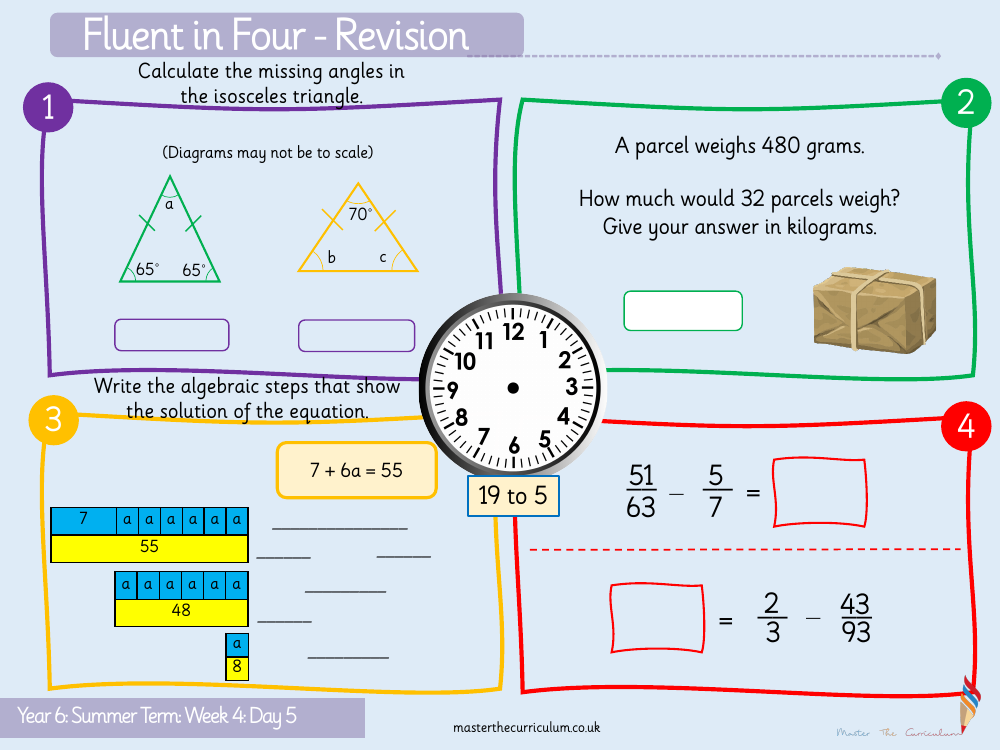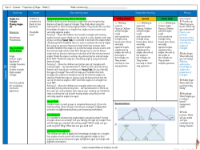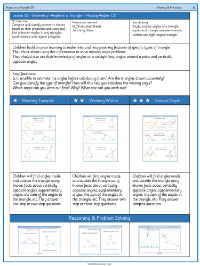Properties of Shape - Angles in a Triangle – Missing Angles (3) - Starter

Maths Resource Description
In a Year 6 mathematics session focusing on the properties of shape, students tackle the challenge of calculating missing angles in triangles, specifically isosceles triangles. The task requires them to apply their knowledge that the sum of angles in a triangle always equals 180 degrees. For example, if an isosceles triangle has two angles measuring 65 degrees each, the missing angle can be found by subtracting the sum of these two angles from 180 degrees. This type of problem-solving is a part of the Summer Term curriculum, scheduled for Week 4, Day 5, where students are encouraged to become fluent in these mathematical concepts through revision exercises.
The lesson also incorporates real-world applications such as calculating the total weight of multiple parcels. If one parcel weighs 480 grams, students must determine the combined weight of 32 parcels and convert this total from grams to kilograms. Additionally, the lesson includes algebraic exercises where students solve equations. For instance, to find the value of 'a' in the equation 7 + 6a = 55, students must isolate the variable 'a' by performing inverse operations such as subtracting 7 from both sides of the equation and then dividing by 6. These varied activities are designed to enhance the students' numerical fluency and their ability to apply mathematical principles across different scenarios.



